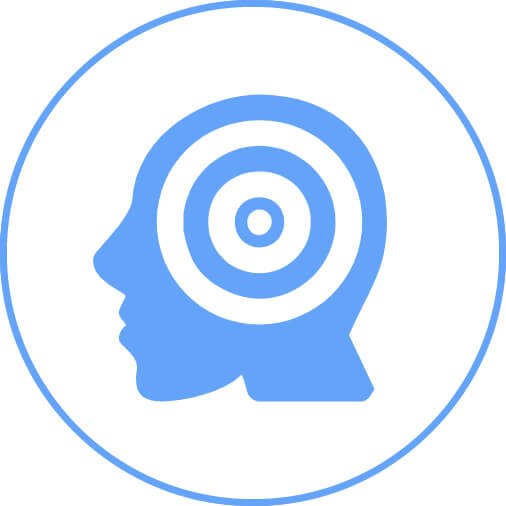Client profiles:
You have experienced one or more traumas and struggle with memories from a distant past up to this day.
They have left a mark that won’t go away and that still influences your experience of your daily life, your thoughts and your actions. You don’t feel as free as other people to enjoy and live your life. You feel a strong need to be in control in order to avoid bad things from happening. You have a hard time relaxing and feel alert most of your waking hours. You suffer the physical consequences of this, such as for example poor sleep, digestive problems, muscular tensions, emotional outbursts, to name a few. Traumas can be extremely debilitating and rob you of your life.
You experience little pleasure from life. You can’t remember the last time you laughed unstoppably, but you feel numb, sad or angry for most of the time. You don’t feel like taking part in activities with others.
You feel that you don’t have the energy to make changes in your life. Your emotions can be out of balance. You can tear up easily, or have sudden fits of rage. There are days you wish you didn’t exist.
You feel compelled to follow specific rituals in order to feel at peace.
You count your steps as you walk, wash your hands following precise internal rules, you check if you have locked the door many times over.
These rituals have taken over your life and you feel trapped. The sole idea of not performing them is unthinkable. It has grown to such an extent that your life is controlled and dominated by them.
Your drugs and or alcohol consumption are out of control.
You you realize you need substances to take of the edge. Close relatives or friends nudge you and express concern.
You feel unable to engage in an intimate relationship with another person. You might feel scared or disgusted by the thought of being closer to someone. This can be related to how you see yourself or experiences you have had in the past with intimacy and or parental care.
More on psychotherapy
Under the premise that people seek help not because they have a problem, but because they don’t know how to solve it, the work done during psychotherapy sessions most frequently rests on the following pillars:
Psychoeducation will give you a framework and a much better understanding of what is actually happening, and why.
Understanding oneself and one’s place in the world. Discovering what are our needs, our attachment styles, our predispositions, biases, talents and capabilities, and how do they contribute to our life’s experience.
Integrating traumas from the past and giving them a new place and meaning in the here and now. Understanding their impact and the person you have become. Transforming your reaction to events taking place here and now.
Learning and applying new behaviors (and unlearning maladaptive ones). Behaviors that promote our wellbeing and help us grow further in life. Behaviors that are solution oriented and reinforce autonomy.
By acquiring, developing and applying new skills, the client feels more integrated, flexible, adaptable and engaged with the here and now. The intended outcome of psychotherapy is for the client to feel more empowered, capable to make personal choices, and capable to deal with their consequences.
